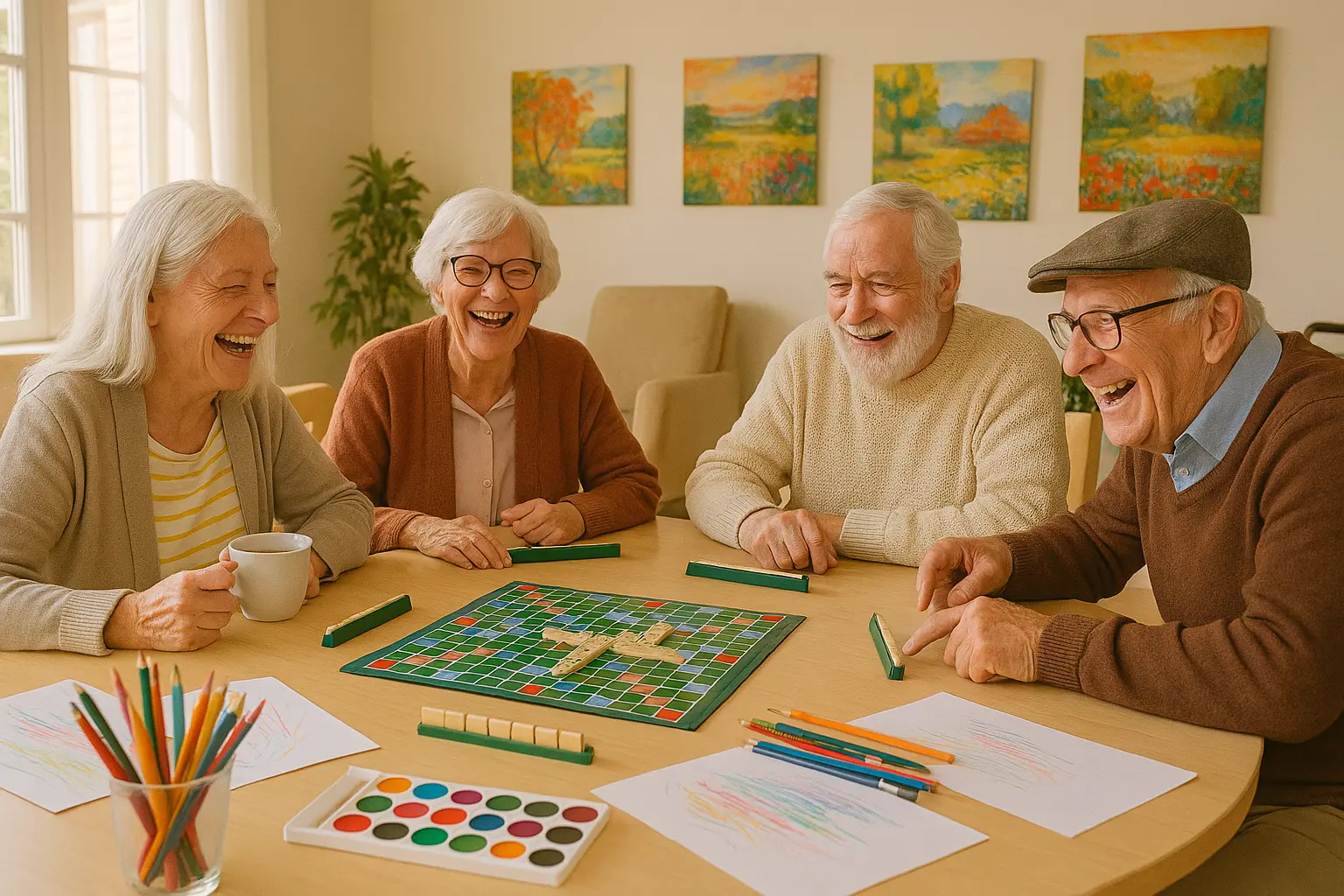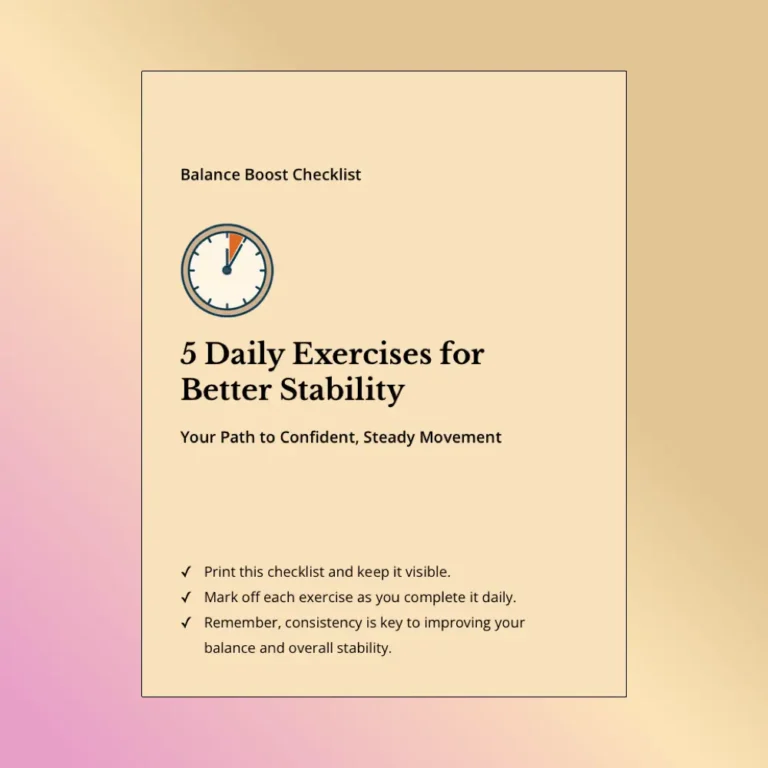

When colder weather arrives, seniors in nursing homes often experience a slowdown in activity. However, inside these senior living communities lies a world of engaging activities ready to stimulate the mind, strengthen the body, and lift the spirit. In places where friendship and creativity come together, staying active becomes incredibly important for home residents. This guide offers numerous fun and engaging activities for seniors suited for different interests and abilities – whether you’re looking to add joy to your own routine or helping enrich someone else’s daily life in assisted living facilities.
In nursing home settings, indoor activities serve as the heartbeat of social interaction and personal development. Let’s explore several benefits these nursing home activities provide:
Regular movement remains important throughout life, particularly for older adults. Consistent physical activities can:
Many home residents find that even light activity significantly improves how they feel day to day. Simple movements practiced regularly can maintain strength and coordination that supports independence in daily tasks. Activity professionals in nursing homes understand that physical and cognitive benefits often go hand-in-hand.
Activities that challenge thinking skills play a crucial role in brain health. They:
Research suggests that seniors living in nursing homes who regularly participate in mentally stimulating activities often maintain better memory and problem-solving abilities compared to those who don’t. Activity directors typically include a range of activities available that support mental stimulation.
Perhaps the most significant impact comes from the connections these activities create. Group activities:
Many nursing home residents report that regular social activities give them something to look forward to each day. Living communities that prioritize social programming often see improved resident satisfaction and well-being of residents.
Games do more than entertain—they bring people together. Consider these options:
These games promote mental activity while encouraging social connections, making them ideal for group settings. Many nursing homes organize regular game afternoons where residents can join existing games or start their own. Bingo games are particularly popular and can be adapted for people with dementia or physical limitations.
Bringing out artistic expression offers many benefits for seniors in assisted living. Options include:
These artistic pursuits encourage not only creative expression but also cognitive engagement, requiring focus and hand coordination. Many seniors discover hidden talents they never knew they possessed when given the opportunity to try different art forms. The garden theme can be incorporated throughout the year with seasonal crafts that assist residents in connecting with nature.
Staying active helps maintain health in senior living communities. Some enjoyable options include:
These activities maintain physical wellness while also improving mood and energy. Even residents with significant physical limitations can usually participate in modified versions of these exercises. The nursing staff can help tailor activities to individual physical and cognitive abilities.
Keeping thinking skills sharp remains a priority for seniors in nursing homes. Consider:
These games entertain while enhancing memory and cognitive abilities. Nursing homes often set up puzzle tables in common areas where residents know they can work together on larger projects over several days. For people with dementia, simplified versions help provide appropriate levels of challenge.
Social engagement supports emotional health. Activities to consider include:
These social activities build community bonds and friendships, necessary for a fulfilling life in long-term care facilities. Structured social events give residents something to anticipate and prepare for, adding purpose to their weekly routines. Many nursing home residents may particularly enjoy reminiscing during these gatherings.
In our digital world, technology bridges distances between loved ones. Consider:
Many nursing homes now offer computer stations or assistance with personal devices to help seniors stay connected with loved ones outside the facility.
The internet offers countless entertainment and learning opportunities:
Many seniors enjoy watching nature documentaries, virtual museum tours, or concerts online when physical attendance isn’t possible. These activities provide residents with ways to explore the world from the comfort of their senior communities.
From cooking to crafting, online tutorials can introduce seniors to new hobbies, adding richness to their lives. Learning something new at any age provides a sense of accomplishment and growth. Activity offerings that incorporate technology help keep seniors engaged with contemporary interests.
Understanding what residents prefer and what they can do plays a key role in planning effective activities. This ensures everyone in assisted living communities can join in and have a good time.
Staff members who take time to learn about residents’ past hobbies and interests often discover valuable insights that help create more meaningful activity program options. Memory care units often require special consideration to provide activities that engage without overwhelming.
Activities should be flexible, allowing adjustments based on individual needs. For example, chair exercises can be modified for different mobility levels, ensuring everyone can participate.
The best activities have multiple ways to engage, allowing residents with varying abilities to participate together without feeling left out. Senior care professionals understand the importance of activities suited to each person’s capabilities.
Including seniors in activity planning creates a sense of ownership and increases participation. Regular feedback helps shape activities for assisted living residents that connect with their interests.
Many nursing homes form resident committees that help plan monthly activity schedules, ensuring the activities truly reflect what residents enjoy. This approach helps residents feel valued and heard within their living communities.
A structured schedule provides stability and predictability, important for mental health. Regular activities enhance feelings of security and belonging for seniors in nursing homes.
Residents often come to associate certain days with favorite activities, giving structure and anticipation to their week. This is especially beneficial for those living with dementia, who may rely on routine for comfort.
Mixing different activities throughout the week maintains high engagement. Consider combining physical activities, creative pursuits, and social gatherings to appeal to all interests.
A well-planned calendar typically includes daily options with a mix of recurring favorites and new experiences to try. Assisted living communities offer a variety of activities to ensure there’s something for everyone every day for residents.
Including themed days and celebrations adds excitement to the routine, creating treasured memories. Birthday celebrations, holiday events, and seasonal garden activities provide natural opportunities for special programming.
Many assisted living facilities also take residents on supervised outings when weather permits, providing a welcome change of scenery and connection to the wider community.
In the diverse community environment of nursing homes and assisted living, engaging activities bring together happiness, connection, and liveliness. From bingo to creative crafts, each activity offers a chance for growth, companionship, and enjoyment. We encourage seniors to actively participate, exploring new hobbies and friendships, while caregivers and families play a key role in supporting their loved ones through this enriching journey.
The range of activities available in today’s senior living communities has expanded dramatically, with many nursing home activity professionals designing programs for seniors that address both enjoyment and therapeutic benefits. These programs provide opportunities for residents to maintain skills, build relationships, and find fulfillment regardless of age or ability.
Share your favorite activities or experiences in the comments below. What brings you happiness in your daily routine? Subscribe for more suggestions and ideas for enhancing senior living as we continue discussing well-being and engagement in nursing home or assisted living environments.
For more information on activities for seniors in assisted living, take a look at best balance exercises for seniors and explore this 10-minute workout for seniors to keep residents engaged and active.
